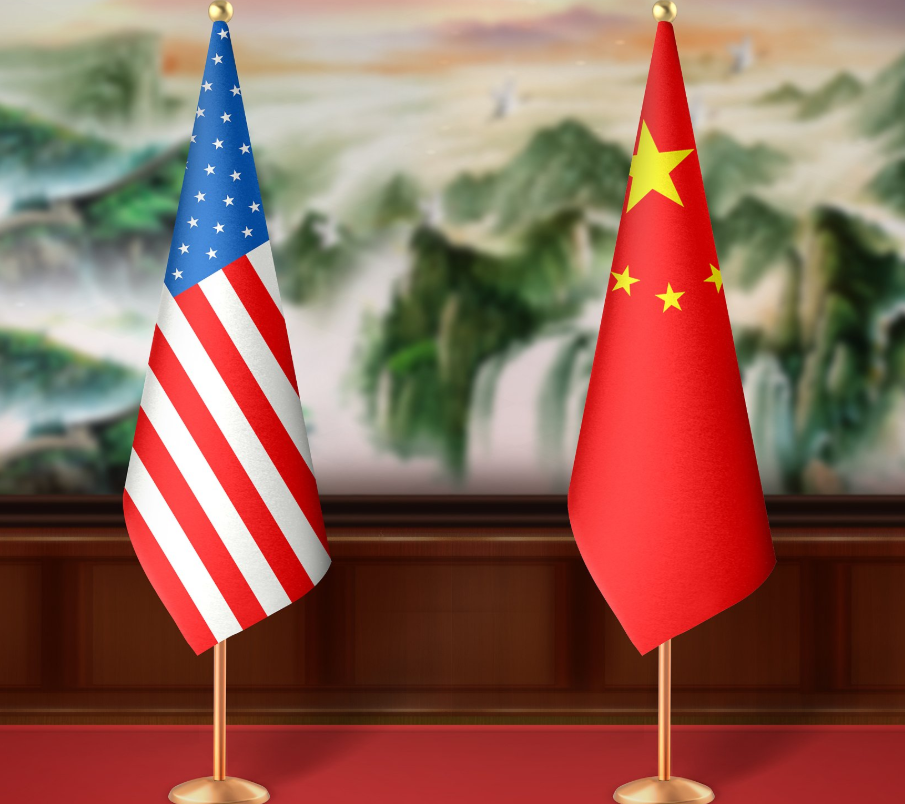China VS USA Trade War: In response to recent statements by the United States accusing China of breaching the consensus reached during the China-U.S. economic and trade talks in Geneva, China’s Ministry of Commerce has issued a strong rebuttal, calling the accusations unfounded and a serious distortion of facts.
China VS USA Trade War
In response to recent statements by the United States accusing China of breaching the consensus reached during the China-U.S. economic and trade talks in Geneva, China’s Ministry of Commerce has issued a strong rebuttal, calling the accusations unfounded and a serious distortion of facts.
The spokesperson for the Ministry of Commerce emphasized that China has always approached the trade discussions with a responsible, sincere, and constructive attitude. Following the joint statement issued on May 12 after the talks, China actively fulfilled its commitments, which included canceling or suspending additional tariffs on certain American goods, in accordance with the consensus reached.
China affirmed that it earnestly addressed the consensus, strictly implemented the agreed measures, and positively upheld the outcome of the Geneva talks. The spokesperson stated that China’s position has been consistent: it is firmly committed to safeguarding its own legitimate interests while maintaining the stability and development of China-U.S. trade relations.
However, China also pointed out that, contrary to the spirit of the Geneva consensus, the United States has continuously introduced discriminatory and restrictive measures against China. These include:
- Export control restrictions on advanced AI chips and semiconductor manufacturing tools to China
- Prohibiting the sale of electronic design automation (EDA) software used for chip design
- Tightening visa issuance policies for Chinese students in sensitive technology-related fields
China condemned these actions as severe violations of the consensus and a direct threat to the healthy development of bilateral trade. These moves, China stated, have intensified trade friction and injected instability and uncertainty into China-U.S. economic ties.
Furthermore, on January 17, the U.S. unilaterally misrepresented and distorted the Geneva consensus during a phone conversation between the two trade teams, which China sees as a serious breach of mutual trust and a grave violation of China’s sovereign trade rights.
In contrast to its own efforts to uphold the consensus, China criticized the United States for repeatedly undermining the spirit and substance of the agreement, while unjustly blaming China for violations. The spokesperson made it clear that such actions have flipped the facts and shifted the blame without justification.
“China firmly rejects the U.S. unjustly shifting blame and baselessly accusing China of violating the consensus of the trade talks in Geneva, which gravely deviates from the facts,” said the Ministry of Commerce spokesperson.
The joint statement from the Geneva talks was described as an important outcome achieved through mutual respect, equality, and cooperation. It represents a hard-won consensus that should be honored and implemented by both sides. China urged the United States to act in good faith, stop issuing false accusations, and join China in safeguarding the progress made during the talks.
The statement concluded with a firm warning: if the United States insists on acting unilaterally and continues to harm China’s legitimate interests, China will not hesitate to take resolute and strong countermeasures to defend its rights and interests.
“China will continue to make firm decisions to protect its legitimate rights and interests and maintain fair trade practices,” the spokesperson added.
As tensions continue to rise between the world’s two largest economies, the future of China-U.S. trade relations remains uncertain. However, China has made it clear that it will not accept groundless accusations and will act firmly to protect its economic interests. Both sides must now decide whether to return to the path of dialogue and cooperation, or risk further escalation and instability in global trade.

